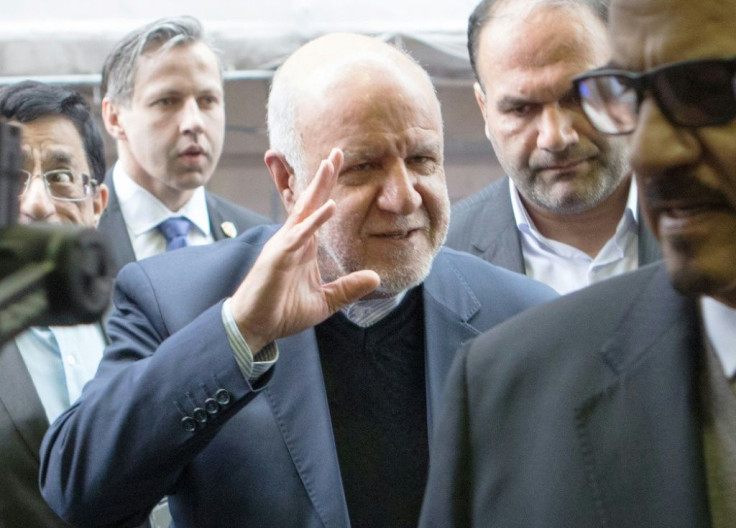Iran's Veteran Oil Minister Says To Retire In Few Months
Iran's veteran Oil Minister Bijan Namdar Zanganeh has said he plans to retire when President Hassan Rouhani's term ends in August following June elections, the ministry's official website reported Monday.
Iran holds a presidential election on June 18 and under the constitution Rouhani is barred from running for a third consecutive term.
Asked by reporters if he would be part of the next administration, Zanganeh said: "I won't accept even if they offer me the presidency," according to the oil ministry's official news website SHANA.
"I will retire from public service but I will stay in politics," he added.
Zanganeh has been at the helm of the oil ministry for a total of almost 16 years since 1997.
But he has had a long public service record stretching back to the start of the 1979 Islamic Revolution and headed other ministries, with local media calling him "sheikh of ministers".

Iran is a founding member of the Organization of the Petroleum Exporting Countries (OPEC) and over the decades Zanganeh has played a crucial role in the cartel's decisions.
The June poll comes as Iran is engaged in talks with world powers in Vienna to revive a 2015 nuclear deal from which former US president Donald Trump pulled out unilaterally in 2018.
Trump also reimposed punishing sanctions on Tehran, including preventing it from selling oil and depriving it of a key revenue for its ailing economy.
As head of the oil ministry under Rouhani since 2013, Zanganeh sought to increase foreign investment in Iran's oil sector following the lifting of international sanctions under the nuclear accord.
But Washington's withdrawal from the deal scuttled those plans, forcing Zanganeh to rely on domestic companies and coordinate oil exports through "unconventional" means.
Iran sits on the world's 4th largest proven oil reserves and was the 8th producing nation last year with 3,535 barrels per day, according to the latest BP Statistical Review of World Energy.
© Copyright AFP 2024. All rights reserved.











